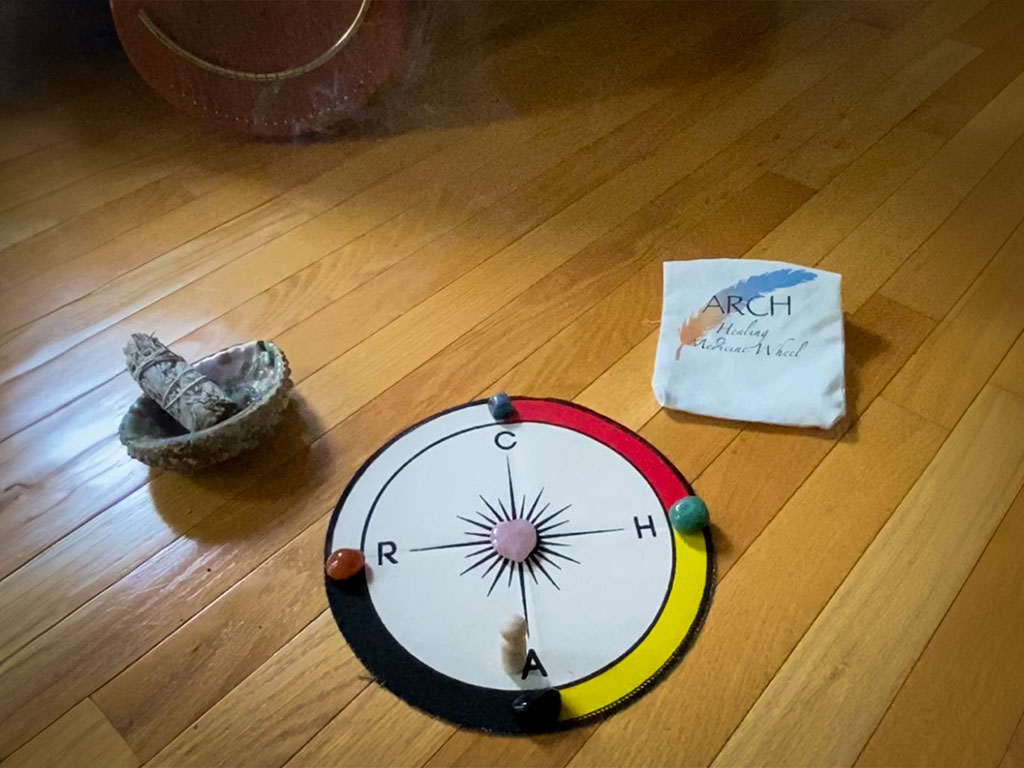A Gendered Analysis Through Freudian, Jungian, and Christian Transpersonal Lenses – by Giovana Lippi
Abstract
This literature review explores the psychological, spiritual, and energetic consequences of unspoken parental resentment following divorce, with a particular focus on gendered outcomes in children. Drawing upon Freudian and Jungian psychoanalysis, transpersonal psychology, and traditional Christian spiritual frameworks, the review examines how children internalize or externalize these unresolved emotional dynamics—especially when one parent subtly undermines the other. It highlights how boys often develop aggression toward mothers when aligned with paternal resentment, while girls are more likely to experience guilt, confusion, and self-doubt. Christian theology is introduced as a lens through which to understand the sacred imperative of unified co-parenting and the spiritual disruption caused by parental disharmony.
1. Introduction
In the aftermath of divorce, overt conflict is not the only factor that impacts a child’s development. Subtle forms of emotional discord—such as unspoken resentment, nonverbal disdain, and energetic detachment between parents—can profoundly shape a child’s emotional and psychological world. When a mother presents the father in a negative light or a father harbors silent contempt for the mother, children unconsciously absorb these emotional frequencies. These dynamics often manifest differently across genders: boys are more likely to externalize distress through aggression or rebellion, while girls tend to internalize emotions, leading to anxiety, low self-esteem, and relational confusion.
2. Freudian Dynamics and Parental Identification
Sigmund Freud’s theory of the Oedipus complex (1923; 1936) provides a foundational understanding of how children navigate conflicting loyalties between their parents. For boys, identification with the father is central to masculine identity formation. However, when the father expresses contempt for the mother—either overtly or through emotional withdrawal—the child may adopt the father’s resentment in an attempt to secure his approval. This can lead to identification with the aggressor, where the boy mirrors the father’s emotional stance and becomes hostile toward the mother.
Similarly, when a mother subtly or overtly discredits the father, the child’s unconscious becomes conflicted. For boys, the father becomes a devalued model of masculinity. For girls, the negative portrayal of the father disrupts their formation of the animus (inner masculine), fostering relational insecurity and mistrust of male authority.
3. Jungian Archetypes and Psychospiritual Disruption
Carl Jung’s theory of archetypes (1953; 1959) expands the understanding of these dynamics through the lens of collective unconscious and symbolic identity. In Jungian terms:
-
Boys inherit a wounded anima (inner feminine) when the mother is emotionally rejected by the father or painted as unworthy. This distorts their ability to relate to women with empathy and openness.
-
Girls develop a fractured animus when the father is belittled or dismissed by the mother, leading to difficulty asserting themselves, trusting men, or forming a secure inner masculine foundation.
When both parents harbor unresolved bitterness—expressed through emotional tone, body language, or avoidance—the child’s unconscious internalizes these conflicting archetypal energies. This undermines the individuation process and may lead to long-term relational or identity disturbances.
4. Energetic and Transpersonal Considerations
Transpersonal psychology, as articulated by Wilber (2000), and systemic constellations theory (e.g., Hellinger), emphasize that children unconsciously carry the emotional burdens of their parents. The emotional field of the family—often referred to as the “morphic field” (Sheldrake, 2011)—acts as a container for unresolved trauma, resentment, and unmet needs.
-
Boys, especially those sensitive to paternal energy, often act out by mimicking the father’s emotional posture—projecting unresolved frustration toward the mother.
-
Girls tend to absorb the emotional charge, internalizing it as anxiety, perfectionism, or relational ambivalence. They may unconsciously attempt to “heal” or mediate the fractured parental bond, often at the cost of their own development.
These energetic imprints are nonverbal and transgenerational, often persisting beyond childhood unless consciously addressed through healing practices.
5. Gendered Behavioral Manifestations
Empirical research affirms that boys are more likely to exhibit externalizing behaviors—such as aggression, conduct problems, and defiance—when exposed to unresolved interparental conflict (Davies & Cummings, 1994; Harold et al., 2016). Girls, by contrast, tend toward internalizing symptoms such as anxiety, depression, self-blame, and inhibited social confidence (Kelly & Emery, 2003). These responses are not merely psychological but reflect deep-rooted patterns in the emotional and energetic field that reflect gendered coping mechanisms.
6. Christian Theology and the Sacred Structure of Family
6.1 Biblical Foundations
Christian theology regards the family as a sacred structure, with parenting seen as a divine stewardship rather than a purely human endeavor. Scriptures such as Exodus 20:12 (“Honor thy father and mother”) and Ephesians 6:4 emphasize not only the importance of mutual respect but the spiritual responsibility of modeling godliness in family relationships. Complementarian theology affirms distinct yet interdependent roles: fathers are called to love sacrificially, and mothers to nurture with wisdom and respect (Ephesians 5:22–33).
6.2 Relational Disruption as Spiritual Brokenness
From a Christian lens, resentment between parents is not only a psychological toxin but a spiritual wound. Children are relational and spiritual beings who absorb not just words but spiritual atmospheres. When unity between parents is broken, the divine pattern is fractured, leaving children vulnerable to both spiritual confusion and psychological fragmentation. Boys may act out this dissonance as defiance; girls may absorb it as shame.
6.3 The Trinitarian Model
Christian tradition often likens the family to the Trinity—Father, Son, and Spirit—as a metaphor for relational harmony. The mother-father-child dynamic mirrors this triune bond, and when one leg is dishonored, the entire spiritual structure is destabilized. Divorce does not negate the spiritual call to unity; it intensifies the need for intentional, respectful co-parenting that prioritizes the child’s spiritual formation and emotional safety.
7. The Essence of Christian Parenting: Partnership, Not Performance
True Christian parenting is not defined by religious performance—such as attending church, quoting scripture, or avoiding secular influences. These may support a Christian household, but they do not constitute Christian parenting at its core.
Rather, Christian parenting is an active, humble partnership with God in raising children. It is rooted in the parent’s ongoing reliance on divine wisdom, grace, and the Holy Spirit’s guidance (cf. John 15:5; Psalm 127:1). As Paul Tripp notes, it is not about parental perfection, but “a confident rest in the power and grace of God.”
This approach recognizes that children are not possessions but entrusted souls, belonging ultimately to God. Parents are called to guide them toward Christ—not to replace Him. The parenting task becomes sacred when it is surrendered to divine partnership, especially post-divorce, when the temptation to assert ego or resentment can be high.
When parents honor each other’s role, even in separation, they offer children a sense of safety, spiritual integrity, and divine belonging. When they allow bitterness or rivalry to govern the parenting field, they damage not only the child’s psyche but also their relationship with God.
8. Integrative Analysis: Cross-Domain Impacts
| Domain | Boys | Girls |
|---|---|---|
| Psychological | Externalize aggression; align with father’s resentment | Internalize anxiety, guilt, and relational insecurity |
| Psychoanalytic | Identification with hostile father; distorted anima | Fractured animus; impaired self-assertion |
| Energetic | Acts out unresolved emotional fields; aggression toward mother | Absorbs energetic discord; experiences guilt and internal tension |
| Spiritual | Feels disconnected from divine order; spiritual confusion | Carries emotional burdens; disoriented in spiritual identity and parental roles |
9. Conclusion and Recommendations
Parental unity—whether within marriage or after divorce—is a psychological, energetic, and spiritual necessity for children’s development. Even silent resentment poisons the relational field children depend on for emotional regulation, identity formation, and spiritual alignment. To mitigate long-term harm:
-
Process and release unresolved resentment. Seek healing, counseling, or spiritual guidance.
-
Commit to respectful co-parenting. Avoid presenting the other parent with contempt, even nonverbally.
-
Reaffirm shared spiritual values. Co-create rituals or moments that reinforce the sacredness of the family bond.
-
Model Christ-like behavior. Fathers must embody sacrificial leadership; mothers must nurture with mutual respect and grace.
In doing so, parents create a field of safety, wholeness, and spiritual alignment—where children can grow with integrity, resilience, and a deep connection to divine love.
Selected References
-
Davies, P. T., & Cummings, E. M. (1994). Psychological Bulletin, 116(3), 387–411.
-
Freud, S. (1923). The Ego and the Id.
-
Freud, S. (1936). Inhibitions, Symptoms, and Anxiety.
-
Harold, G. T., et al. (2016). Journal of Family Psychology, 30(7), 881–891.
-
Jung, C. G. (1953). Psychological Aspects of the Anima.
-
Jung, C. G. (1959). The Archetypes and the Collective Unconscious.
-
Kelly, J. B., & Emery, R. E. (2003). Family Relations, 52(4), 352–362.
-
Sheldrake, R. (2011). The Presence of the Past.
-
Wilber, K. (2000). A Theory of Everything.
-
The Holy Bible: Exodus 20:12, Ephesians 5:22–33, John 15:5, Psalm 127:1, Isaiah 55:8–9.






